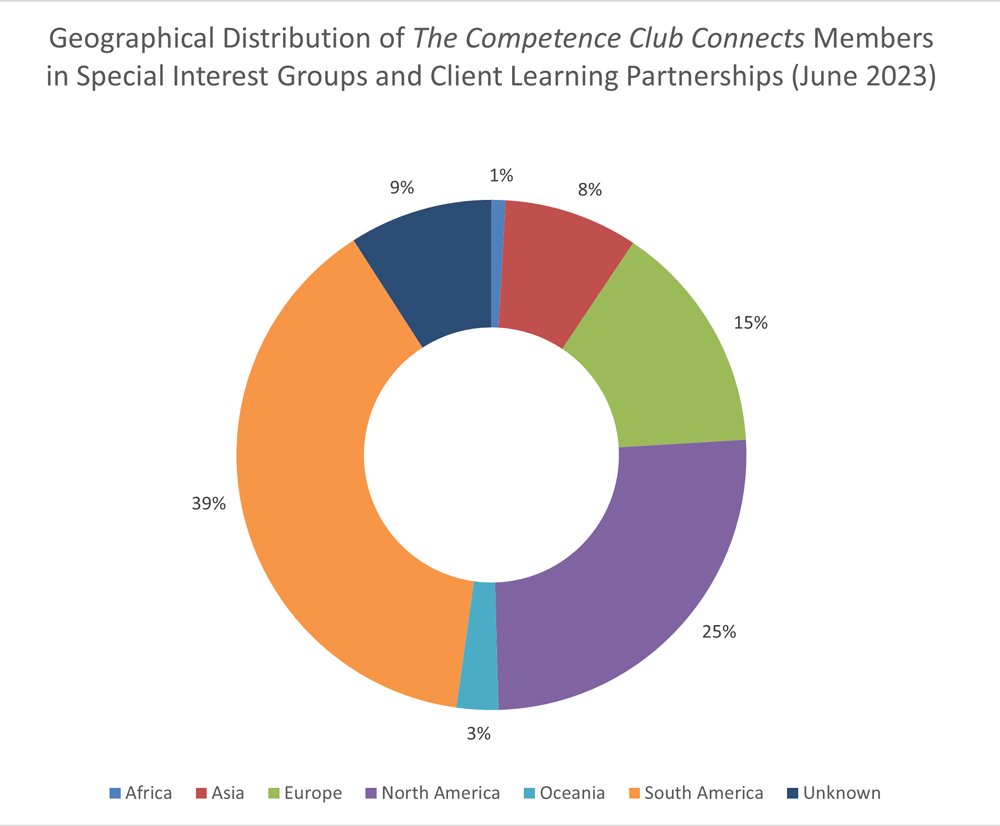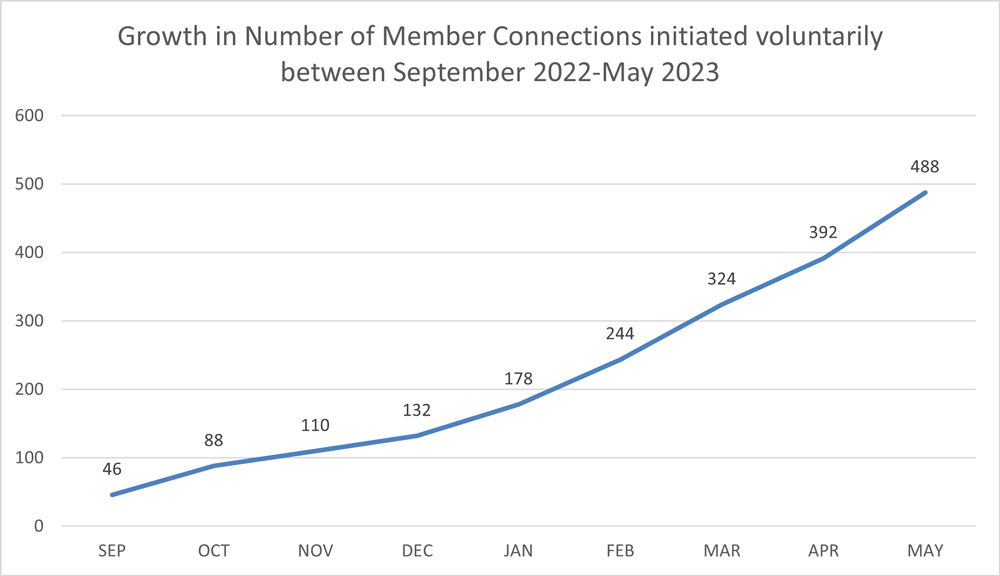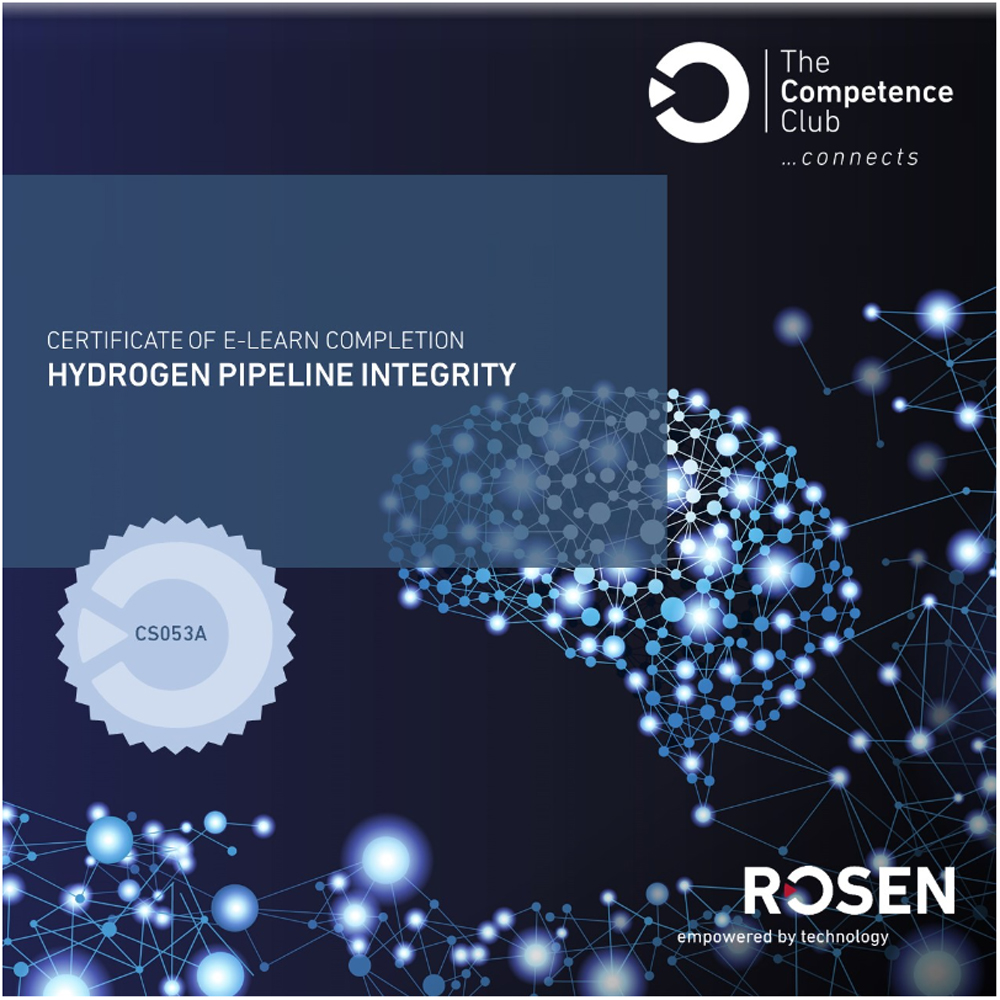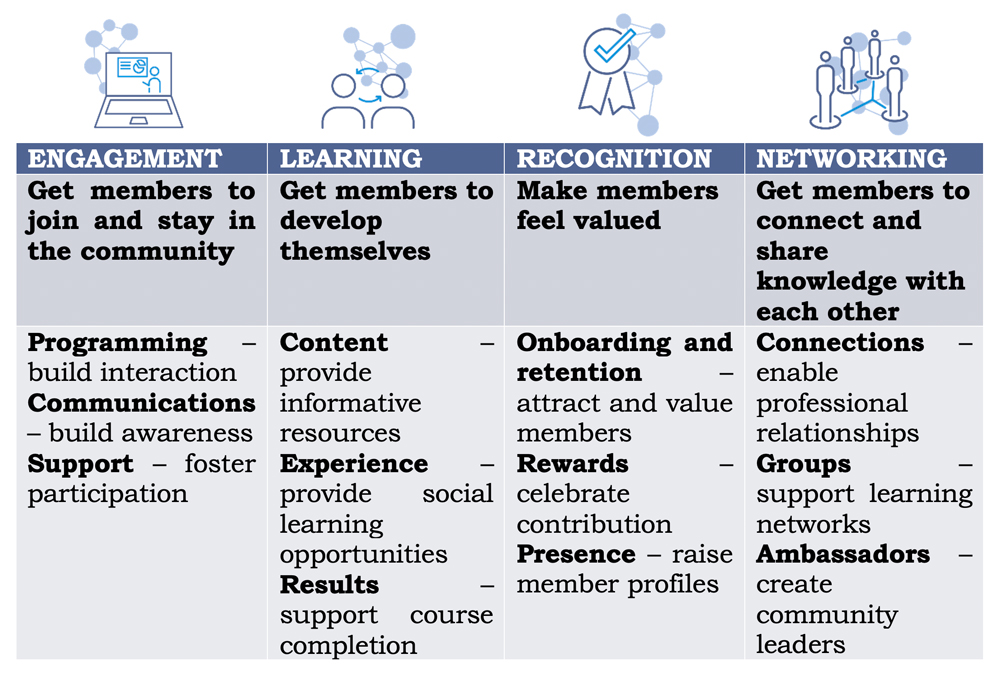August 2023, Vol. 250, No. 8
Features
Applying Social Learning to Develop Pipeline Competence
By Michelle Unger and Janine Weightman, ROSEN, UK
(P&GJ) — We live in times of unrelenting change. Humans cope by learning, adapting and innovating. Yet we rarely do this alone.
It’s one thing to commission generative AI to create and process information for us and automate tasks. However, tackling the unknowns, ambiguity and complexity of real-life is a different challenge.
This article discusses how ROSEN has applied virtual social learning to initiate knowledge networks within their flagship education initiative – The Competence Club Connects – to help members develop their pipeline competence in extraordinarily disruptive times.
Navigating Disruption
The changes occurring in the pipeline industry call for more effective learning cycles, critical thinking, faster application of new knowledge, and the regeneration and evolution of competence within its workforce.
The threat of lost knowledge through the great crew change, the inescapable introduction of artificial intelligence, and the urgency for new domain knowledge in areas such as hydrogen pipelines, increases the onus on an engineer’s individual decision-making capability. Being able to tap into the wisdom of the crowd will be a key resource for any pipeline professional to deliver future projects safely and accurately.
Our innate drive to learn together is perhaps even more relevant nowadays in helping us to make sense of the world so that we can act effectively in it. The need to learn faster and adapt smarter to changes is becoming a daily art.
Social learning in virtual communities reflects how people learn collectively together through observation and interaction within online spaces. It enables people to augment their sense-making and integrate their learning by interacting within a ready-made diverse pool of human experience.
These communities are not only a contemporary holistic solution to our primal learning needs and are changing the way the world works [i].
Case Study
For social learning to take place, people need to be present, participate willingly and feel psychologically safe. A way to achieve this by fostering knowledge-sharing networks.
Since 2016, ROSEN has provided a range of solutions to support over 2,800 members in developing competence[ii]. The Competence Club Connects started by providing courses and has evolved into equipping a worldwide learning network with competency assessments, industry-accredited certification, online resources and events, and virtual community.
Through the service, the team has supported young pipeline professionals, engaged and recruited industry experts, and addressed customers’ bespoke learning needs. The initiative was also shortlisted in the ASME Global Pipeline Awards 2022 [iii].
The Competence Club Connects is founded on four factors that tie into and enable social learning: membership, influence, fulfilment of needs and shared emotional connection [iv]. It features tools and activities for discussion, networking, dissemination and creation of content, expertise location, attending events, and member profiles, for example.
For more on the community design and justification, see the Pipeline & Gas Journal article, “Virtual Communities Transforming Pipeline Competence Development.” [v].
Groups
The special interest groups (SIGs) are of particular interest in the application of social learning. ROSEN have focused on growing three specific SIGs: energy transition, competence development and young pipeline professionals as a mechanism to support member’s development.
Furnished with a group feed, discussion area, member directory and content curation, these groups provide members with tools and opportunities to interact around a specific topic through discussions and events. A noteworthy observation is that most of members joined voluntarily. From the outset, the team has observed a natural appetite within its membership toward convening around topics of interest.
To support client learning partnerships, The Competence Club Connects provides closed groups to curate its members’ structured learning journeys whilst also enabling these members to interact with the wider community around industry topics. These groups enable staff in client companies to interact with each other outside of their usual organizational boundaries.

Member Connections
The club helps members generate their social capital by making it easy to connect with other members in the platform at their convenience. With very little promotion, there has been a noticeable trend in members connecting with each other voluntarily (Figure 2).
It was, and remains, the main social activity since the platform launched demonstrating the personal value members perceive in building connections within the community.
Members can network with each other through connection requests, messaging, special interest groups, and facilitated events. The Competence Club Connects creates an exclusive, noiseless space where members can forge both enduring and transient relationships with each other, which they can rely on when they need knowledge or peer assistance to develop their competence.
Profiles
The club focusses on developing a members’ sense of acceptance, belonging, and professional identity by ensuring a member feels included, and their professional achievements and community contribution are visible.
This raises levels of attention and trust to promote social learning. Each member profile showcases evidence of their profession and competence (Figure 3). The team also celebrate learning achievements to raise the profile of members.
Rationale
The club team recognizes virtual social learning as an integral component to modern competence development.
However, there is little evidence of sufficient skills, confidence and attitudes within the industry that are required to support optimum inter-and intra-company virtual social learning. Therefore, the focus is key themes to attract, retain and engage members in the learning networks (Figure 4).
Networking in an online space allows us to generate social and professional rapport through synchronous and asynchronous interaction. The novelty of virtual networking, however, can affect one’s perception of value and how the person will engage.
The team actively facilitates networking and is showing members how to develop their approach to growing their linking, bridging, and bonding social capital within the industry [vi].
Virtual Community
Virtual communities offer us a way to bring people together for a specific purpose and outcome in a way that transcends geographic, demographic and professional boundaries to establish diverse networks of knowledge.
Members convene voluntarily through a shared motivation to explore, overcome, or understand a common goal, interest or idea [vii].
Virtual communities foster a bedrock of diverse social capital that is an invaluable learning resource and support network for their members as they interact through strong and weak member-member connections. They also create equity in learning and access to expertise between marginalized, transgenerational and transdisciplinary groups, for example [viii].
Membership to online communities is popular and has increased since the Covid-19 pandemic. For example, in a 2020 survey TheGovLab asked 15,000 people across 15 countries about membership to online Facebook groups to evaluate the power of virtual communities. They discovered that in 11 out of 15 countries, the largest proportion of respondents reported their most important group was primarily online [8].
Virtual communities act as watering holes for intellectual exchange, a nexus for learning, a meeting post for idea validation, an instant support network, and a melting pot of social learning experiences.
Learning Together
Humans now need speedy ways to make sense of new contexts; learning networks of relationships founded on shared interest, competence-based and benevolence-based trust [ix] can enable this. In virtual communities, people tend to convene around three key needs [x]: talking about things together, learning and developing together, or collaboratively solving problems.
The team draw on Bandura’s principles of social learning theory [xi] to establish and sustain effective mutual learning relationships between experts and non-experts. They have discovered that social learning, particularly in virtual environments, works best when knowledge-holders and knowledge-seekers have:
- a degree of acquaintance and rapport with each other that enables a relationship.
- respect and compassion for one another’s level of experience to enable productive conversations.
- skills to interact effectively with each other to activate the potential of the relationship.
The complexity in sharing knowledge must also be considered when we attempt to learn together. Researcher Dave Snowden’s seven principles of rendering knowledge highlight significant human factors at play when we attempt to share, acquire and create knowledge [xii].
- Knowledge can only be volunteered it cannot be conscripted.
- We only know what we know when we need to know it.
- In the context of real need, few people will withhold their knowledge.
- What we know is fragmented.
- Failing in small ways imprints learning better than success.
- The way we know things is not the way we report we know things.
- We always know more than we can say, and we will always say more than we can write down.
The authors believe that social learning and the power of networking with each other, supports these principles. Through the application of these concepts, members can connect to the unique contexts from which they are gaining knowledge, leverage human experience, engage in discussions and storytelling, and open sustainable relationships to help them evolve their understanding over time [xiii].
Conclusion
By combining the critical elements of networking, meaningful interaction, psychological safety, and recognition, The Competence Club Connects is bringing a range of industry minds together in mutual social learning relationships to help the workforce acquire and maintain core competencies – and discover new ones.
This offers new opportunities to immortalize experience, leverage global expertise and cultivate the next generation of the workforce [5].
The pipeline industry already has the essential ingredients for success in social learning: shared identity and purpose, diversity, engaged people, a wealth of experiences, and a future of problems to be solved [5].
Social learning is a potentially game changing mechanism for contemporary professional development, when applied consciously, as a way of bringing together industry human capital to tackle the competence challenges of the pipeline industry such as the energy transition, retiring workforce, talent attraction, and creation of new knowledge.








Comments